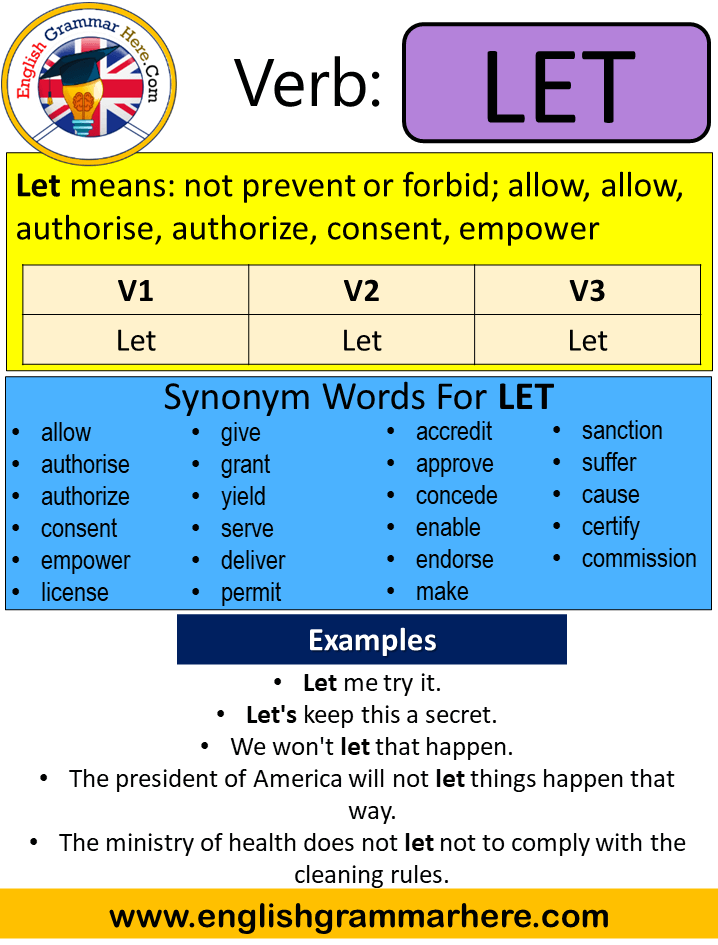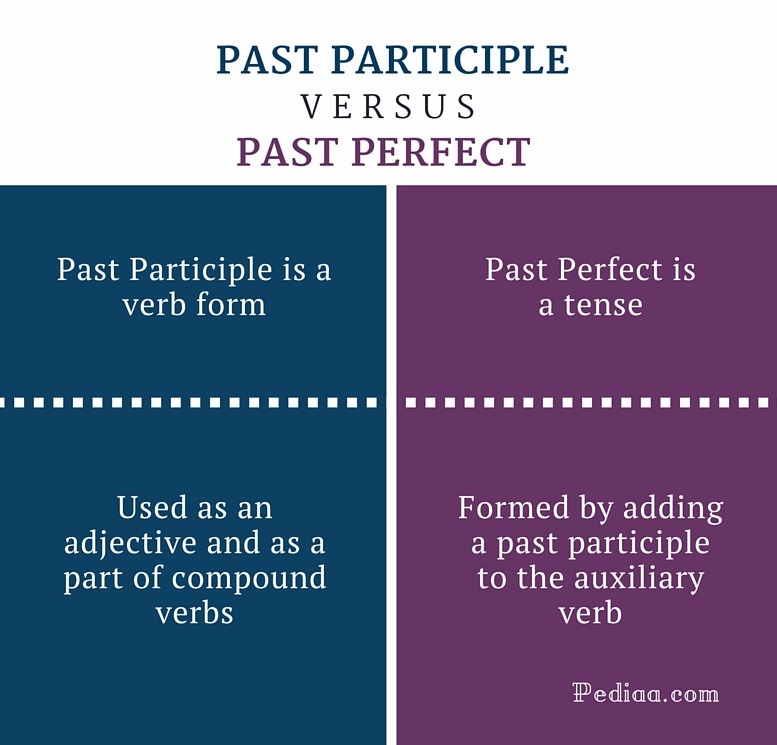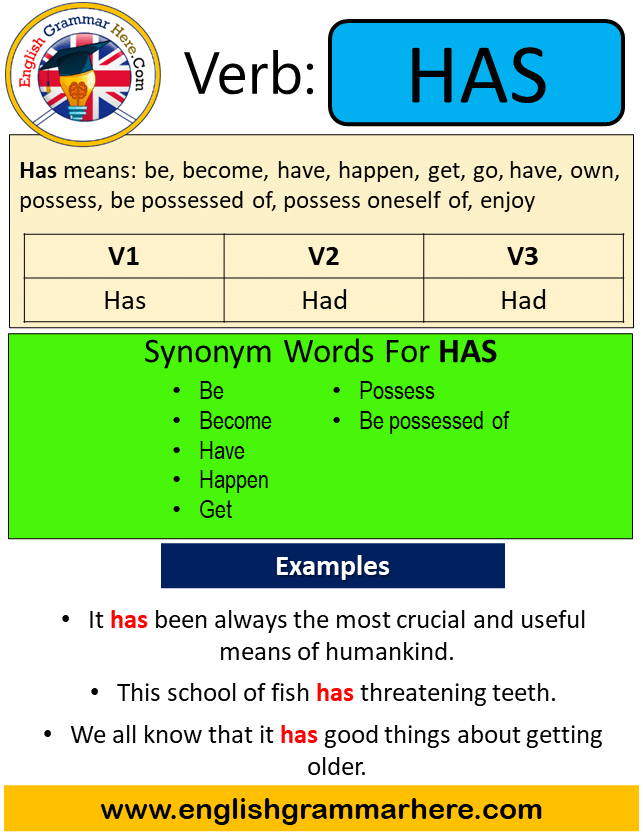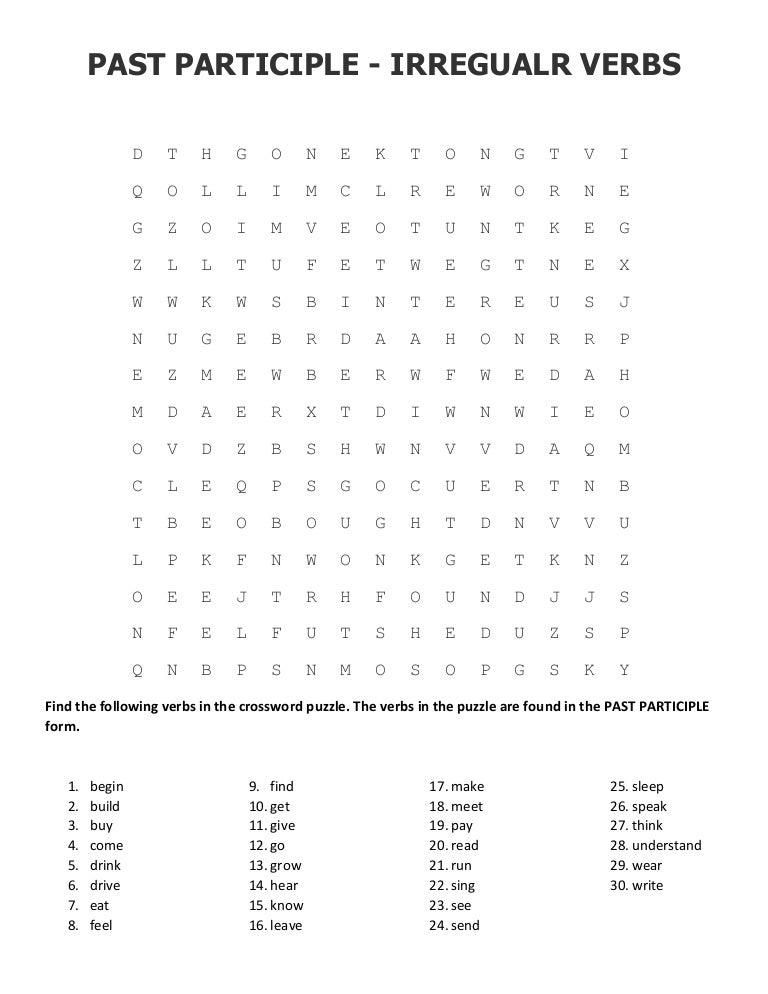
Learn Past Simple, Simple Past Tense of Learn Past Participle, V1 V2 V3
The past participle of this verb, 'to learn' is formed by adding 'ed' to the base of the word, in this case, 'learn' . So then you have the word learned. However, there is also another spelling which is learnt. Both forms are correct. It is just a matter of the usage in British English or American English but you should be safe with any of the two.

Let Past Simple, Simple Past Tense of Let Past Participle, V1 V2 V3
What Is a Past Participle? A past participle is a word with the following three traits: It is formed from a verb. It is used as an adjective or to form verb tense. It probably ends "-ed," "-d," "-t," "-en," or "-n." Table of Contents A Closer Look at a Past Participle Find the Past Participle Test Video Lesson

Past Participle for Fly LamarrosGarrison
The past tense and past participle of learn are: learn in past simple is learnt, learned, and past participle is learnt. learned. What is the past tense of learn? The past tense of the verb "learn" is "learnt", or "learned", and the past participle is "learnt" or "learned". Verb Tenses Past simple — learn in past simple learnt, learned (V2) .

List of Past Participle Grammar Syntax
Learned is the more common past tense and past participle of the verb learn.Learnt is a variant especially common outside North America.In British writing, for instance, it appears about once for every three instances of learned.In the U.S. and Canada, meanwhile, learnt appears only once for approximately every 500 instances of learned, and it's generally considered colloquial.

English Detailed Regular Verbs, Infinitive, Past and Participle
Past participle learned/learnt Model : obey / burn Auxiliary : have, be Other forms: learn oneself / not learn Contractions Advertising Indicative Present I learn you learn he/she/it learns we learn you learn they learn Preterite I learned/learnt you learned/learnt he/she/it learned/learnt we learned/learnt you learned/learnt they learned/learnt

50 Examples of Present Tense, Past Tense and Past Participle English
A past participle form of a verb can be used to form the present perfect verb tense ( have learned/learnt) or the past perfect verb tense ( had learned/learnt) or, sometimes, as an adjective. Here's an example of learned and learnt being used in present perfect form: I have learned/learnt many things from you.

Pin on Verbs in English
Present Perfect Continuous Tense He/She/It has been learning. I have been learning. You/We/They have been learning. Simple Past Tense He/She/It learned or learnt (chiefly UK). I learned or learnt (chiefly UK). You/We/They learned or learnt (chiefly UK). Past Continuous Tense He/She/It was learning. I was learning. You/We/They were learning.

Difference Between Past Participle and Past Perfect Learn English
Past Participle learned or learnt Present Participle learning Present I learn you learn he/she/it learns we learn you learn they learn Present Continuous I am learning you are learning he/she/it is learning we are learning you are learning they are learning Present Perfect

IRREGULAR VERBS (Infinitive, Past Simple, Past Participle
From Middle English lerned, lernd, lernyd, equivalent to learn + -ed, which replaced the earlier lered (" taught "), from Old English (ġe)lǣred, past participle of lǣran (" to teach "). Learn formerly had the meaning "to teach", which is now found only in nonstandard speech, as well as its standard meaning of "to learn".

Has Past Simple, Simple Past Tense of Has, Past Participle, V1 V2 V3
The verb "to learn" means to acquire knowledge of, or skill in, something through study or experience. "To learn" is one of those verbs with both an irregular form and a regular form. As shown in the table, the past tense and the past participle can be written as either "learned" or "learnt."

List of irregular verbs in infinitive past simple and past participle
[transitive, intransitive] to gain knowledge or skill by studying, from experience, from being taught, etc. learn something to learn a language/skill/trade He had the opportunity to learn English in Australia. learn (something) from somebody/something I learned a lot from my father.

Search Past Simple in English, Simple Past Tense of Search, Past
Past Tense Of Learn, Past Participle Form of Learn, Learned Learnt V1 V2 V3 Table of Contents Past Tense of Learn Meaning Base Form Examples V2 Past Simple V3 Past Participle Past Tense of Learn We use the word ' learn ' very often in our daily life. In this lesson, we will examine the details of this widely used expression.

English Present, Past, Perfect Participles Definition and Examples Tabl
Most verbs have a past tense and past participle with -ed: worked played listened But many of the most frequent verbs are irregular: Irregular verbs Average Give it 1/5 Give it 2/5 Give it 3/5 Give it 4/5 Give it 5/5 Average: 4 (495 votes) ‹ Verb phrases Up Questions and negatives › Do you need to improve your English grammar?

Past Tense Of Learn, Past Participle Form of Learn, Learned Learnt V1
These are alternative forms of the past tense and past participle of the verb learn.Both are acceptable, but learned is often used in both British English and American English, while learnt is much more common in British English than in American English.. We learned the news at about three o'clock. They learnt the train times by heart.. There are a number of other verbs which follow the same.

Past participle wordsearch 2
Learnt and learned are both used as the past participle and past tense of the verb to learn. Learned is the generally accepted way of spelling it in the United States and Canada, while the rest of the English-speaking world seems to prefer learnt for now. Why for now?

Participles What Is A Participle? Present & Past Participle • 7ESL
Regular Verbs in the Past Tense and Past Participle Irregular Verbs in the Past Tense and Past Participle Conjugating the Preterite Tense in the Negative and Interrogative Forms Examples of the Past Tense and Past Participle in Action "A long time ago, in a galaxy far far away…" — "Star Wars"